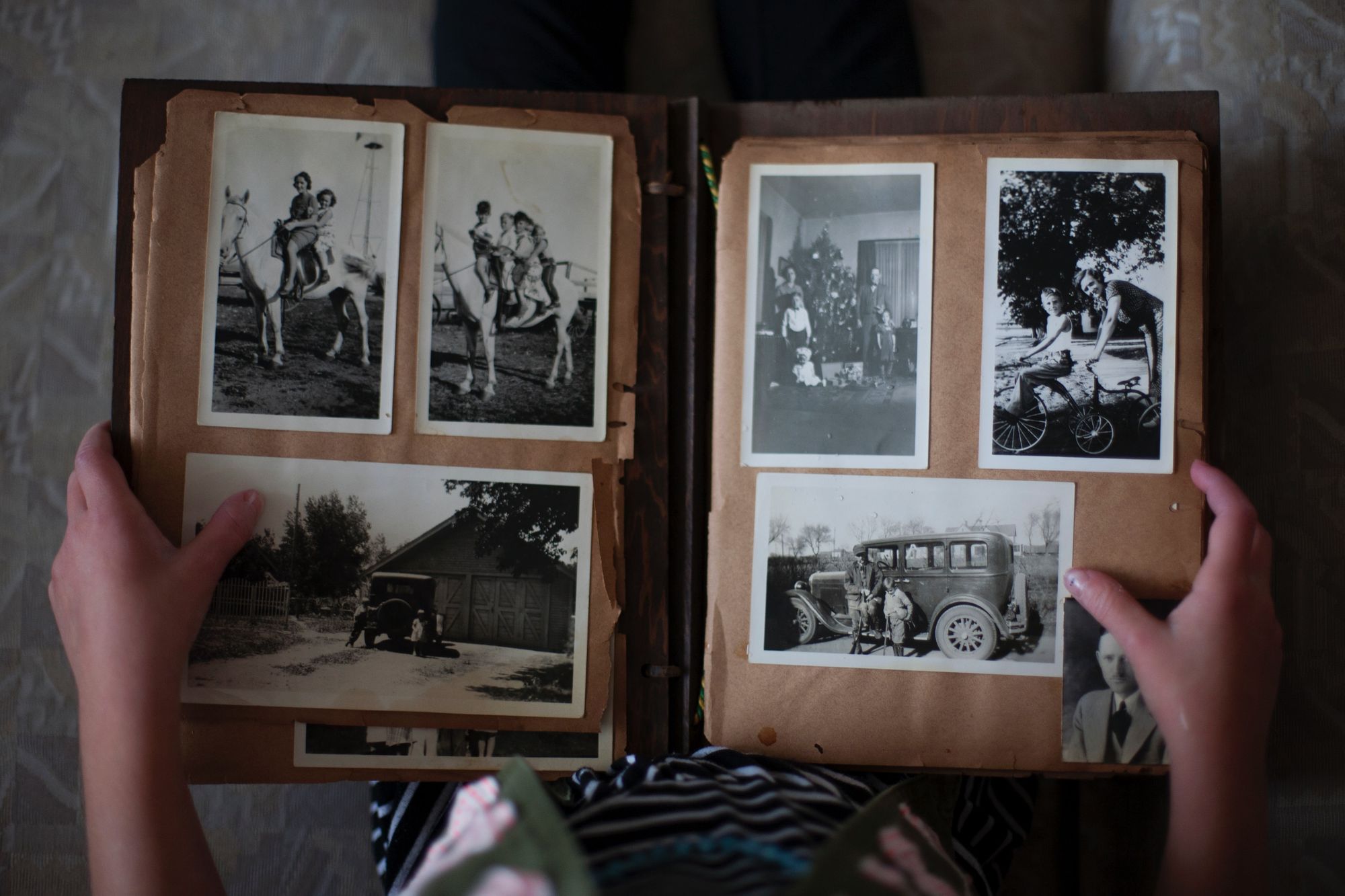To Connect & Express: The Importance of Life Story Work with Dementia Patients

Anna Toane
Humans are unique and we remain so even when we get sick or change or approach death.
It’s vital to remember each of us is still a person behind whatever disease or ailment or challenge we’re faced with.
No matter how far we veer from who we once were, we’re still human and deserve person-centred care.
This blog focuses specifically on folks with dementia and supporting them in ways that encourage communication and storytelling.
“Each person with dementia is different: when it comes to offering support, different things are helpful for different people. Knowing the person, their history and interests, and understanding how dementia is affecting their life is crucial if the support offered is to be genuinely helpful.”
One way to offer that support is through the use of Life Story work.
What Is Dementia?
Dementia is not an inevitable part of aging, it’s a disease in its own right. It occurs “when the brain is affected by certain diseases or conditions that cause the gradual death of brain cells. This leads to progressive cognitive decline.”
The cognitive decline varies “from person to person and may depend on which type of dementia they have. Symptoms include:
- loss of memory
- changes in behaviour and mood
- problems with communication and reasoning skills.”
There are many different types of dementia, the most common being:
“Over 747,000 Canadians are living with Alzheimer’s or another dementia. Worldwide, at least 44 million people are living with dementia—more than the total population of Canada—making the disease a global health crisis that must be addressed.”
What Is Life Story Work?
“[A]n activity in which the person with dementia is supported by staff and family members to gather and review their past life events and build a personal biography. It is used to help the person understand their past experiences and how they have coped with events in their life.”
“Our life experiences shape us as individuals and this helps others to understand who we are as a person.” And for people “with dementia sometimes need help to communicate important aspects of their identity—like background, interests, who and what is important to them—due to problems with memory loss and communication.”
Grounded In
A project supported by the Foundation of Nursing Studies (FoNs) and Dementia UK involved the facilitation of life story work within seven NHS Older Adult Mental Health in-patient areas. Admiral Nurses facilitated the work in each area using systematic approaches to developing practice and supporting staff members in developing their knowledge and skills.
The results of this project indicated where Life Story Work was successfully implemented within in-patient settings; this resulted in improved understanding of patients and family carers by staff. The experience of doing life story work was overwhelmingly positive and there was evidence that the delivery of care had become more person-centred as result.
Whilst successful implementation of life story work was achieved within all the in-patient settings, outcomes were better in areas which had the following characteristics:
- Strong and consistent leadership
- Higher ratio of qualified staff to unqualified staff
- Context or culture that supports change and encourages communication
Benefits
- Share stories and enhance sense of identity, which can be especially useful when the person is having difficulty sharing this information
- “The greatest benefit of this work is that it lifts a person’s mood—enabling them to talk about the ‘good old days’ and share their experiences of growing up, working, holidays and family get-togethers”
- Encourage better communication and an understanding of the person’s needs and wishes, which can also mean they can communicate directly about their care and ensure that it is provided in a positive and person-centred way
- Develop closer relationships with family carers and staff through sharing stories.
Free Resources
Other Ways to Engage
Life story work and reminiscing are “inextricably linked. They both involve focusing on a person’s past and bringing their history to life and into the present.”
- Reminiscence work: recalling past events with the help of old photographs, newspaper clippings, videos of old films or familiar items
- Sporting memories
- Memory boards & boxes: “help rekindle memories and to remind a person with dementia of important future dates or appointments”
- Music: lift mood and spirit, as well as remember the good old times; often “evoke[s] memories of a time when the person felt more confident and potent in their life.”
Increasing Wellbeing
While there are currently no treatments that stop or slow the brain damage caused by dementia, support, care and “the use of non-pharmacologic behavioural interventions” for people with dementia can have a significant impact on their quality of life. This includes:
- Treatment of co-existing medical conditions
- Coordination of care among health care professionals
- Participation in activities, which can improve mood
- Behavioral interventions (to help with common changes, such as aggression, sleep issues and agitation)
- Education about the disease
- Building a care team for support
Help & support:
What’s most important, behind the care the person needs, is to remember the human behind the brain changes. It can be difficult to recognize yourself or your loved one as the disease progresses and the sense of self and identity can feel as though it’s evaporating.
Like any conversations around illness, death and dying it can be difficult to know where to begin and what to do if you start noticing changes in yourself or a loved one. It may simply be “normal forgetfulness, or it may be something more serious… However, these are significant health concerns, and it’s important to take action to figure out what's going on.”
Once you receive the focus attention and care required, and have spoken to a healthcare professional, it may be supportive to also consider Life Story work. It’s simply one way to remain engaged and connected as the disease progresses and may provide a connection back to the person behind the disease. There can be value in stories to increase wellbeing.
We’re here to support you. To learn more, visit us at eirene.ca/.




